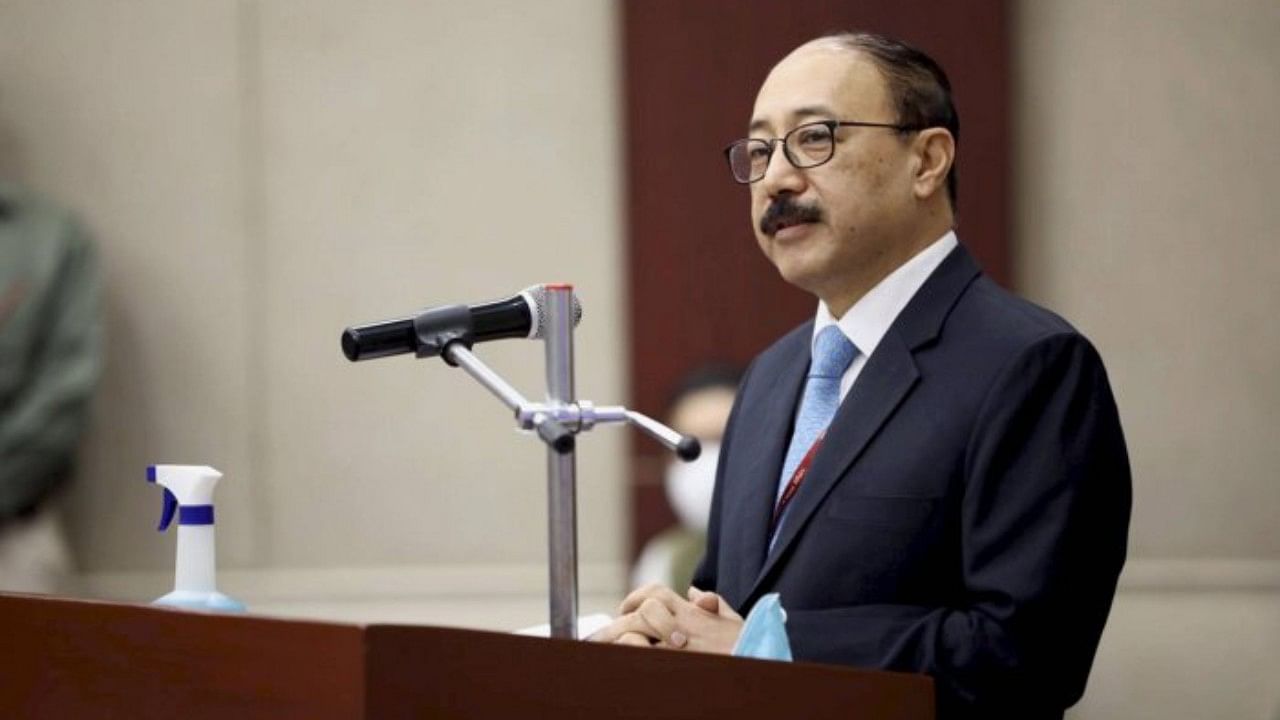
Pakistan, which has been projecting itself as a facilitator, has been in many senses an instigator of some of the problems that India has been dealing with in its neighbourhood, Foreign Secretary Harsh Vardhan Shringla has said.
Both during the India-US bilateral meeting by Prime Minister Narendra Modi and US President Joe Biden and the Quad summit comprising Australia, India, Japan and US, there was a clear sense of a more careful look, examination and monitoring of Pakistan’s role in Afghanistan, he said, as the Indian delegation concluded its two days of hectic engagements in the city.
"Both in the bilateral discussions as well as in the forum discussions there was the clear sense that a more careful look, and a more careful examination and monitoring of Pakistan's role in Afghanistan. Pakistan's role on the issue of terrorism, had to be kept, and that certainly weather it is Quad or its other partners have to keep track of that factor,” Shringla told reporters at a news conference here on Friday.
Also Read | Pakistan is 'arsonist' disguising itself as 'fire-fighter': India's strong Right of Reply at UNGA
“An important factor which sometimes gets overlooked is when you see Pakistan, protecting itself as a facilitator, whereas, it has really been in many senses an instigator of some of the problems that we're dealing with in our neighbourhood and beyond,” he said in response to a question.
Prime Minister Narendra Modi along with his counterparts - Scott Morrison of Australia and Japan’s Yoshihide Suga - on Friday attended the first in-person meeting of Quad leaders hosted by US President Biden.
At the invitation of President Biden, Prime Minister Modi and his counterparts from Australia and Japan gathered in the American capital for the first-ever in-person Quad summit at the White House.
Modi also held his first bilateral meeting with US President Biden in the Oval Office of the White House. Biden, who welcomed Prime Minister Modi in the Oval Office, said they are starting a new chapter in the US-India relationship.
Shringla said during the bilateral discussions at the While House, there was a clear concern expressed on Pakistan's role in Afghanistan and the continuing support for an approach that did not seem to be conducive to the international community's expectations of what the war-torn country should be like.
During the meeting, both India and the United States agreed that the issue of terrorism is very important. Both sides denounced any use of terrorist proxies and emphasised the importance of denying the logistical, financial or military support to terrorist groups, which could be used to plan, or launch terror attacks, he said.
The leaders also noted that the US and India will be organising a counter-terrorism joint working group meeting designation dialogue and there is also going to be a renewed US India Homeland Security dialogue in the areas of law enforcement, he said.
Noting that there was quite a bit of discussion on Afghanistan, Shringla said that there was a lot of importance attached to the fact that the United Nations resolution 2593 was adopted and India's Presidency of the Security Council.
This is an important resolution which reflected the international community’s general view on the situation in Afghanistan and the obligations of the ruling dispensation there to fulfill certain conditionalities that the international community faced are important, he said.
“So, the two sides underscored the importance of combat and terrorism in Afghanistan. They called on the Taliban to adhere to these and all of its commitments under resolution 2593. That includes, obviously the issue of ensuring that the Afghan territory is not used to threaten attack against any country, shelter any terrorist groups or finance terrorist attacks and underscores the importance of combating terrorism in Afghanistan,” he said.
The two delegations also called upon Afghanistan to respect human rights of women, children, minorities, provision of humanitarian assistance and access to humanitarian workers, Shringla said.
They also called upon the two sides to secure an inclusive political negotiated settlement in Afghanistan, he said.
“This is an important point. I think the fact that the current ruling dispensation did not appear to be an inclusive one, did not involve the ethnic minorities of Afghanistan to the extent that it should, that it did not did not include participation of women,” he said.
Check out DH's latest videos: